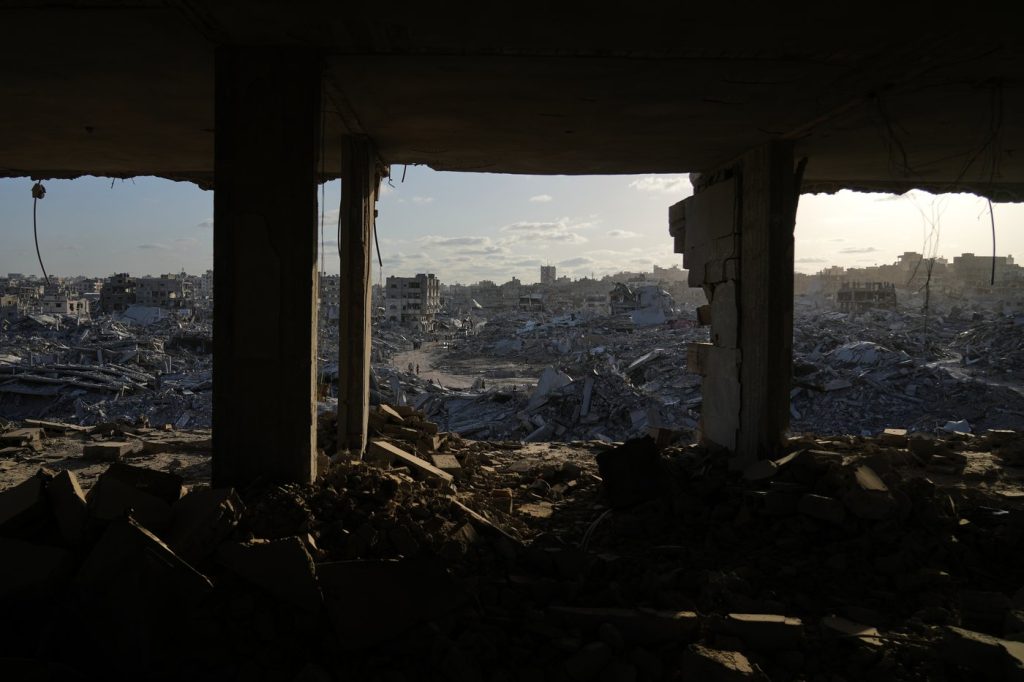World
Israel and Hamas Set to Exchange Hostages and Prisoners

Israel announced on Sunday that it expects the release of all living hostages held in the Gaza Strip to occur on Monday. This development comes as part of a ceasefire agreement with Hamas that has raised hopes for an end to the ongoing conflict. The announcement coincides with preparations for a visit by U.S. President Donald Trump to both Israel and Egypt, further emphasizing the rapid shifts in the region’s dynamics since the ceasefire was declared.
Israeli government spokesperson Shosh Bedrosian confirmed that all 20 hostages will be handed over simultaneously to the Red Cross. The hostages will be transported in six to eight vehicles and taken to a military base for reunification with their families or immediate medical care if necessary. “We do not expect militants to conduct the exchanges in the same way as previous rounds,” Bedrosian stated.
Upon the release of the hostages, Israel plans to free approximately 2,000 Palestinian detainees and hold a ceremony in Gaza for the 28 hostages believed to be deceased. Their remains will be transferred to the Institute of Forensic Medicine for identification. Gal Hirsch, Israel’s coordinator for Hostages and the Missing, mentioned that an international task force will begin searching for deceased hostages who are not returned within a designated timeframe, as some may be buried under rubble.
Humanitarian Aid and Conditions in Gaza
As preparations for the hostage exchange unfold, efforts to increase humanitarian aid entering Gaza are also underway. The Israeli military agency overseeing humanitarian efforts announced that aid deliveries would rise to approximately 600 trucks per day, as outlined in the ceasefire agreement. Egypt is contributing to this effort by sending 400 aid trucks, laden with medical supplies, blankets, food, and fuel, across the Rafah border crossing.
The United Nations has indicated that it possesses roughly 170,000 metric tons of aid ready to enter Gaza pending Israeli approval. Abeer Etifa, a spokesperson for the World Food Program, reported that workers are actively clearing roads within Gaza to facilitate these deliveries. Nevertheless, the humanitarian situation remains dire, with a hunger crisis affecting many residents as violence and restrictions have severely limited access to essential resources.
The role of the Gaza Humanitarian Foundation, which has been the primary food supplier in the region since May, appears uncertain following the ceasefire. Distribution sites operated by the group have been dismantled, and there are ongoing concerns regarding its ability to effectively deliver aid without interference from armed groups.
Political Developments and Trump’s Visit
President Trump, who played a significant role in brokering the ceasefire, is scheduled to arrive in Israel on Monday morning. His itinerary includes meetings with families of hostages and a speech at the Knesset, Israel’s parliament. Following his visit to Israel, Trump will travel to Egypt, where he is set to co-chair a “peace summit” with regional leaders.
The timing of the release of Palestinian prisoners held in Israel under the ceasefire agreement has not yet been disclosed. This group includes 250 individuals serving life sentences, alongside 1,700 others detained during the conflict without formal charges. Dr. Mounir al-Boursh, head of the Health Ministry in Gaza, expressed hope that the bodies of medical personnel who died in Israeli custody would be included in the handover.
As Palestinians begin to return to areas vacated by Israeli forces, many find their homes reduced to rubble. Satellite images analyzed by the Associated Press indicated a significant movement of vehicles traveling north to Gaza City, with tents set up along the coastal areas for those displaced by the conflict. Armed police have been deployed in Gaza City to secure aid deliveries and maintain order in areas vacated by Israeli troops.
The ceasefire has allowed first responders to access previously unreachable locations to recover bodies buried under debris. Since the truce began, health officials reported that 233 bodies have been recovered and transported to hospitals.
The conflict, which began on October 7, 2023, has had devastating consequences. Following a surprise attack by Hamas militants that resulted in the deaths of around 1,200 Israelis, Israeli military responses have led to the loss of over 67,000 Palestinian lives, according to Gaza’s Health Ministry.
As both Israelis and Palestinians express cautious optimism regarding the ceasefire, significant uncertainties remain about the long-term governance of Gaza and the fate of Hamas. Israeli Defense Minister Israel Katz announced plans for military operations to dismantle tunnels constructed by Hamas, emphasizing that these actions will occur under international oversight once the hostages are released.
The situation continues to evolve, with the humanitarian crisis and political dynamics at the forefront of discussions as the region navigates this critical juncture.
-

 Science3 months ago
Science3 months agoToyoake City Proposes Daily Two-Hour Smartphone Use Limit
-

 Health4 months ago
Health4 months agoB.C. Review Reveals Urgent Need for Rare-Disease Drug Reforms
-

 Top Stories4 months ago
Top Stories4 months agoPedestrian Fatally Injured in Esquimalt Collision on August 14
-

 Technology3 months ago
Technology3 months agoDark Adventure Game “Bye Sweet Carole” Set for October Release
-

 World3 months ago
World3 months agoJimmy Lai’s Defense Challenges Charges Under National Security Law
-

 Lifestyle4 months ago
Lifestyle4 months agoVictoria’s Pop-Up Shop Shines Light on B.C.’s Wolf Cull
-

 Technology3 months ago
Technology3 months agoKonami Revives Iconic Metal Gear Solid Delta Ahead of Release
-

 Technology3 months ago
Technology3 months agoApple Expands Self-Service Repair Program to Canada
-

 Technology3 months ago
Technology3 months agoSnapmaker U1 Color 3D Printer Redefines Speed and Sustainability
-

 Technology3 months ago
Technology3 months agoAION Folding Knife: Redefining EDC Design with Premium Materials
-

 Technology4 months ago
Technology4 months agoSolve Today’s Wordle Challenge: Hints and Answer for August 19
-

 Business4 months ago
Business4 months agoGordon Murray Automotive Unveils S1 LM and Le Mans GTR at Monterey









